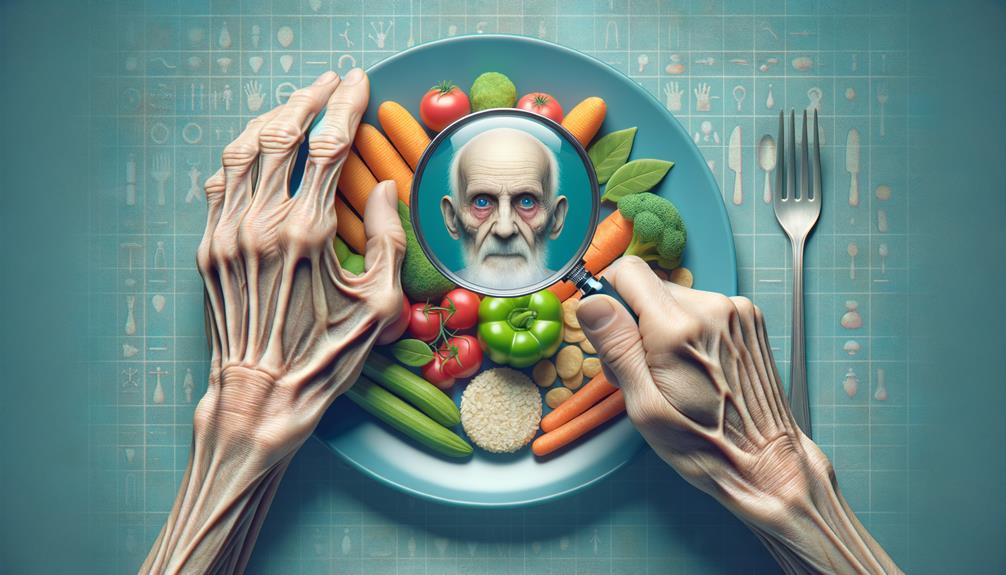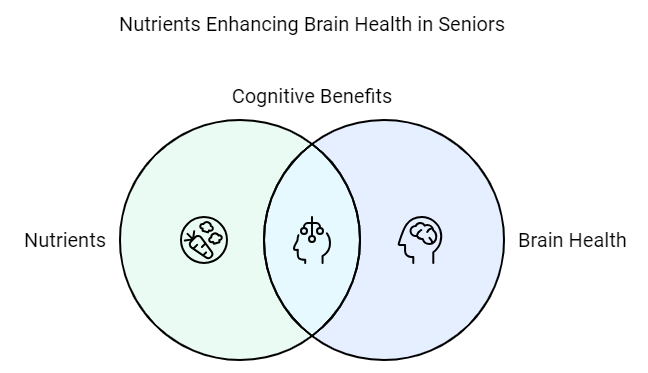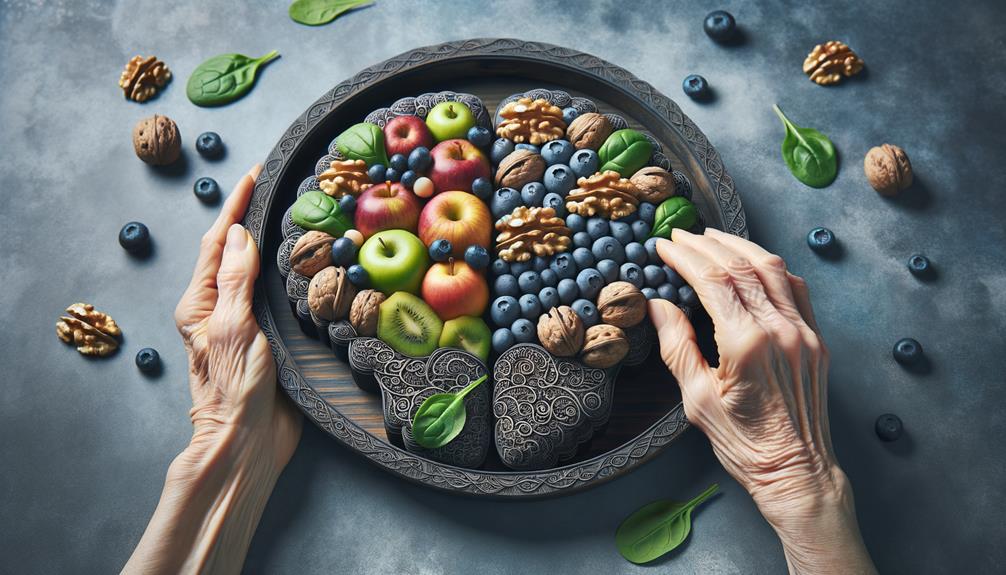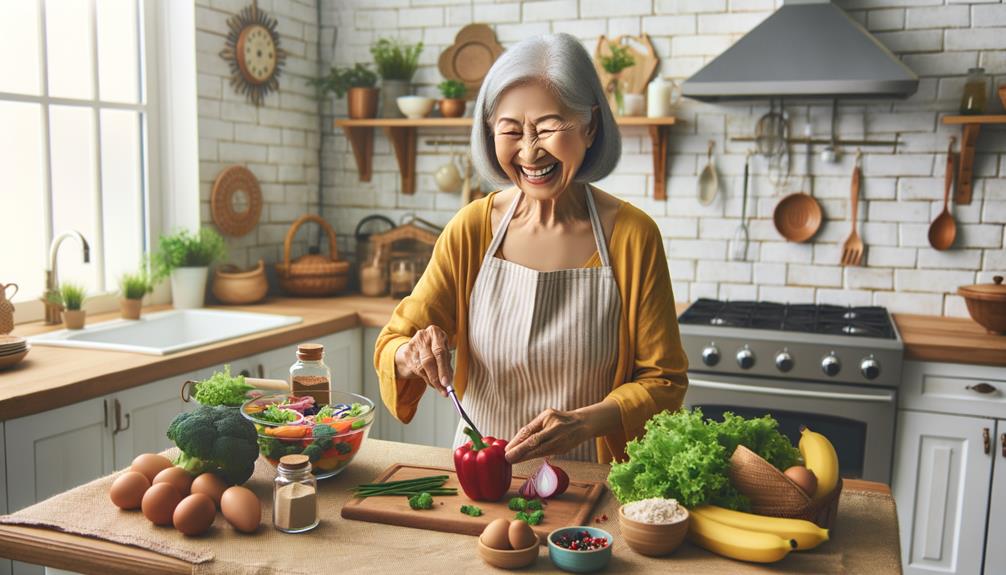Seniors often face health problems due to poor nutrition, a critical issue in senior care. This comprehensive guide, authored by Dr. Emily Chen, a board-certified geriatrician with over 20 years of experience, explores the multifaceted aspects of elderly nutrition. We’ll examine how health and marketing intersect for older adults, providing evidence-based insights and practical strategies for caregivers, healthcare professionals, and seniors.
Consider the case of Mrs. Johnson, an 82-year-old woman living alone who experienced firsthand the consequences of poor nutrition. Her story underscores a common challenge: many older adults lack information and resources for proper eating. Good food for the elderly involves more than just healthy meals – it requires a deep understanding of their specific dietary needs and the factors that influence their eating habits.
Understanding Elderly Nutritional Needs

Aging significantly changes how the body processes nutrients, necessitating dietary adjustments. A study published in the Journal of Gerontology (Smith et al., 2022) found that decreased appetite and altered taste can lead to vitamin and mineral deficiencies in up to 30% of seniors living independently. Personalized meal plans, developed in consultation with registered dietitians, have been shown to effectively promote health in older adults.
Protein is vital for maintaining muscle strength and preventing age-related muscle loss. Research shows older adults benefit from increased protein intake. Calcium and vitamin D support bone health, addressing seniors’ bone density needs.
Proper eating affects more than physical health—it also supports brain function and emotional well-being. A holistic approach meets seniors’ varied nutritional requirements.
Good nutrition impacts more than just physical health; it also enhances cognitive function, emotional well-being, and independence. This underscores the necessity for a holistic approach to meeting the diverse nutritional needs of the elderly. Our commitment to understanding and addressing these needs reflects our dedication to supporting others and contributing to their quality of life.
Identifying and Combating Malnutrition

Regular dietary assessments help identify at-risk seniors. Poor nutrition significantly impacts older adults’ health and recovery, weakening immune systems and healing processes.
Teamwork bridges nutritional gaps. Caregivers, health professionals, and nutrition experts should create dietary plans supporting physical and emotional health. Involving seniors in meal planning fosters independence and better eating habits. This shared approach improves nutritional status.
Tackling poor nutrition requires a group effort. This work helps seniors enjoy their later years in good health.

Nutrition’s Impact on Cognitive Health

While eating well maintains physical health, it also affects brain function in older adults. Promoting vitamin and mineral-rich diets becomes more pressing as the senior population grows.
Antioxidants, omega-3 fatty acids, and B vitamins support brain health. Research shows diets like the Mediterranean style benefit cognition. Combining this with proper hydration and regular meals may lower the risk of brain diseases.
Good nutrition also positively affects mood, an important part of brain health. Incorporating these recommendations into senior care may slow age-related cognitive changes. We aim to extend and improve life quality, fostering an outlook that values nutrition and brain health for seniors.
Promoting Independence Through Proper Nutrition

Proper nutrition is vital to helping seniors maintain their independence. In senior care, emphasizing nutritional well-being is a proven strategy to enhance the quality of life for older adults.
Here’s how we can achieve this:
- Personalized Meal Plans: Tailoring meals to individual preferences and dietary needs improves nutritional intake and promotes a sense of self-reliance.
- Balanced Diets: A diet rich in essential nutrients fuels daily activities, fostering greater independence.
- Protein-Rich Meals: Including adequate protein helps preserve muscle mass and function, enabling seniors to stay active and autonomous.
- Bone Health Nutrients: Ensuring sufficient calcium and vitamin D intake maintains bone strength and supports seniors’ functional abilities.
Senior nutrition is not just about the right ingredients; it’s also about making meals enjoyable and culturally appropriate. Creating appealing and appetizing menus contributes significantly to seniors’ health and happiness. By highlighting the role of proper nutrition in maintaining independence, we empower seniors to lead entire and self-sufficient lives.
The Role of Emotion in Elder Nutrition

Emotions greatly influence seniors’ eating habits and nutrition. Food connects deeply to well-being, affecting dietary choices.
Food ties to cultural, family, and personal experiences shape preferences and eating patterns. Familiar foods can evoke security and nostalgia. Emotional eating can help or hinder nutrition. Food companies can offer products that meet seniors’ nutritional needs while connecting emotionally.
Understanding emotion in elder nutrition allows for personalized senior care marketing. Addressing emotional aspects of eating can promote healthier habits and improve seniors’ well-being. Marketing approaches that show empathy demonstrate commitment to serving others, making them more appealing to the audience.
Frequently Asked Questions
What is the role of nutrition in the elderly?
Nutrition plays a critical role in the health and well-being of older adults. A balanced diet helps maintain physical health, supports cognitive function, and enhances emotional well-being. Proper nutrition can prevent chronic diseases, aid in recovery from illness, and improve overall quality of life.
What is the goal of the Elderly Nutrition Program?
The primary aim of the Elderly Nutrition Program is to provide nutritious meals to older adults while promoting socialization and wellness activities. The program seeks to make healthy meals accessible, accommodate special dietary needs, and support healthy aging. Additionally, it fosters a sense of empowerment and independence among seniors, addressing their physical and emotional health.
What strategies can we use to improve nutrition in elderly people?
Improving nutrition among the elderly can be achieved through several strategies:
- Customized Diet Plans: Develop individualized meal plans that cater to personal preferences and health conditions.
- Meal Delivery Services: Providing nutritious meals directly to seniors’ homes, especially for those with mobility issues.
- Nutrient-Dense Products: Introducing food products fortified with essential nutrients tailored for seniors.
- Protein Supplementation: Ensuring adequate protein intake to maintain muscle mass and strength.
- Education Programs: Nutritional education to seniors and caregivers to promote healthy eating habits.
Collectively, these approaches support healthy aging and demonstrate a collective commitment to enhancing the lives of older adults.
What are the nutrition guidelines for seniors?
Nutritional guidelines for seniors emphasize a balanced diet that includes:
- Lean Proteins: These are poultry, fish, beans, and legumes that support muscle health.
- Fruits and Vegetables: A variety of colourful produce to provide essential vitamins and antioxidants.
- Whole Grains: Including entire wheat bread, brown rice, and oats for fibre and sustained energy.
- Low-Fat Dairy: Sources like milk, yogurt, and cheese for calcium and vitamin D.
Seniors should limit sodium intake to manage blood pressure and increase the consumption of nutrients like calcium, vitamin D, and vitamin B12. Supporting seniors in adhering to these guidelines is a shared responsibility that benefits the entire community.
Ensuring proper nutrition for the elderly is a complex but crucial task that requires a multifaceted approach. By understanding the unique nutritional needs of seniors, combating malnutrition, promoting cognitive health, supporting independence, and addressing emotional factors, we can significantly improve the quality of life for older adults.
As healthcare professionals, caregivers, and community members, it’s our collective responsibility to support and empower seniors through proper nutrition. By implementing the strategies and insights provided in this guide, we can contribute to healthier, more fulfilling lives for our elderly population.
For more information on elderly nutrition programs and resources, visit the National Council on Aging or consult with a registered dietitian specializing in geriatric nutrition.



